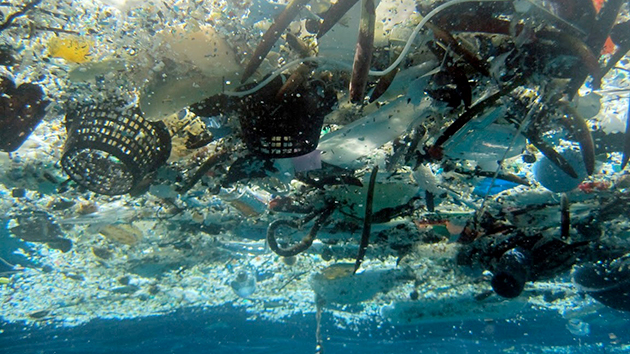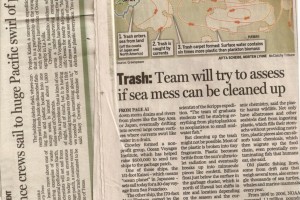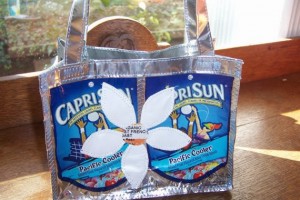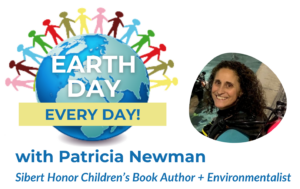BY MOLLY VINCENT, GUEST STUDENT BLOGGER

Molly Vincent
Ever since the 2009 Scripps Environmental Accumulation of Plastics Expedition (SEAPLEX) featured in Plastic, Ahoy: Investigating the Great Pacific Garbage Patch, more scientists have followed the SEAPLEX lead.
A 2010 study found that 275 million metric tons of trash was dumped in the patch from 192 coastal countries all over the world. From South Africa to the San Francisco Bay area, 15% to 40% of waste ends up in the ocean. China alone dumped almost five billion pounds of plastic in 2010.
Karen Lavender Law, a research professor of oceanography at Sea Education Association in Woods Hole, Massachusetts, opened up in an interview on Public Radio International’s Science Friday about plastic waste in the oceans. Due to the alarming amount of plastic floating in the world’s oceans, she raises an important question: Will we soon be swimming in a sea of plastic?
The biggest contributors to the plastic waste crisis are developing countries with growing populations, such as China and Indonesia. The second biggest contributors are high-income countries (such as the U.S.) with large coastal populations that contaminate surrounding waterways. In addition to common plastic waste (such as water bottles and food containers), plastic garbage from natural disasters, such as hurricanes and tsunamis, contribute to the excess litter. Micro beads found in toothpastes and face washes are too small to be trapped by waste-water treatment facilities and also find their way to our waterways.
The big problem is that plastic does not fully degrade. Instead, it turns into smaller and smaller bits, but the pieces don’t fully break down and disappear. Marine animals feed on plastic pieces that not only cause internal damage, but contaminate their tissues with harmful toxins found in the plastic. The plastic pieces also act as small sponges and absorb other toxins in the ocean. In addition, the plastic gives the animals the false feeling of being full.
Despite, plastic trash in the ocean, many people are taking the first steps towards a cleaner environment. Currently, sixteen restaurants in San Diego, CA have eliminated plastic in exchange for paper goods.
OPPORTUNITIES TO ACT
- Instead of drinking water from plastic bottles, try Boxed Water; the BPA-free packaging will most likely decompose faster.
- In addition readers can challenge manufacturers to produce less plastic and to make their packaging more sustainable by writing letters and signing petitions.








Leave a Reply
Your email is safe with me.